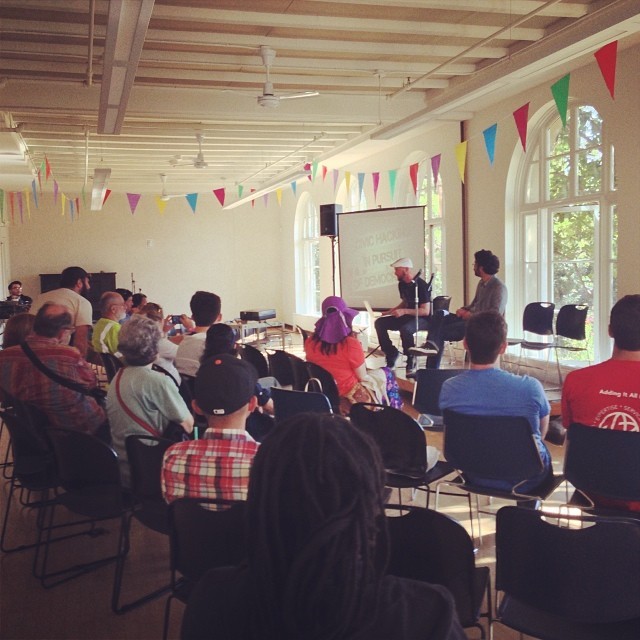Open Disclosure is the product of a unique partnership between the City of Oakland Public Ethics Commission, which enforces Oakland’s campaign finance laws, and OpenOakland, a civic innovation organization.
Continue readingWhich of Your Local Candidates Support Transparency?
In anticipation of this year’s local elections, many open government advocacy groups have surveyed local candidates on open data issues and shared the results in hopes of informing and mobilizing citizens to vote for candidates that are committed to transparency. We’ve seen open data questionnaires conducted around North America this fall for a variety of motivating factors, including: To Fight Past Corruption, To Foster New Open Data Initiatives—or simply—To Maintain Current Open Data Momentum. This trend of open data surveys is indicative of a widespread interest in transparency issues this election season, and with a growing number local governments adopting administratively-sensitive open data laws, a trend we likely see more of in the future.
Below we have rounded up a mini-landscape of open data candidate questionnaires distributed this election season.
Continue readingOakland’s Public Participation Route to Open Data Legislation
 Steve Spiker and Eddie Tejeda (open data policy organizers) sharing OpenOakland’s work at East Bay Mini Maker Faire.
Oakland passed an open data law earlier this month (October 15, 2013) that was generated by the people and for the people. Open Oakland captain Steve Spiker (Spike) gathered the Open Oakland and broader open government community to draft and chat the best open data policy for Oakland. Spike and Open Oakland, in addition to garnering support for the open data policy, cultivated the policy from start to finish through drafting, public comments, a call to experts, and [teleconferenced] public meetings. Open Oakland serves as an excellent example of the community's role in generating open data policy, and their public input process is an exemplar route to incorporating public perspectives into policy. The Sunlight Foundation's Guideline to incorporating public perspective into policy implementation reads as follows:
Steve Spiker and Eddie Tejeda (open data policy organizers) sharing OpenOakland’s work at East Bay Mini Maker Faire.
Oakland passed an open data law earlier this month (October 15, 2013) that was generated by the people and for the people. Open Oakland captain Steve Spiker (Spike) gathered the Open Oakland and broader open government community to draft and chat the best open data policy for Oakland. Spike and Open Oakland, in addition to garnering support for the open data policy, cultivated the policy from start to finish through drafting, public comments, a call to experts, and [teleconferenced] public meetings. Open Oakland serves as an excellent example of the community's role in generating open data policy, and their public input process is an exemplar route to incorporating public perspectives into policy. The Sunlight Foundation's Guideline to incorporating public perspective into policy implementation reads as follows:
Implementing the details of an open data policy will benefit from public participation. Open data policies not only have effects government-wide, which will require consideration, but also have consequences for a variety of stakeholder groups outside of the government. Allowing these groups to participate in the decision-making process (and make real contributions) can have great benefits for policy creation and execution. Stakeholders and experts can bring to the table valuable new perspectives that highlight challenges or opportunities that might not otherwise be obvious. Formal mechanisms for collaboration can include hearings, draft proposals open for public comment and contribution, and online resources like wikis and email lists.Below we have outlined Oakland's public input process and how it is part of a growing trend to openly include community perspective, desires, and concerns into open data policy. Continue reading
Come to CityCamp Oakland
On December 1, all roads will lead to Oakland, CA for CityCamp Oakland -- an unstructured conference where municipal employees, department heads, technology folks, developers, journalists and engaged citizens will talk about technology and local government. Organized by OpenOakland, the City of Oakland and other local organizations, CityCamp Oakland will show how innovative technology and open data can improve civic engagement, increase efficiency and government transparency while connecting residents to the city of Oakland. The Camp will be at the City Hall. Sunlight’s Evangelist, Bill Pease will also be present to share more on what we do, the data and tools we provide to support open government and our approach to local innovations.
Continue reading
